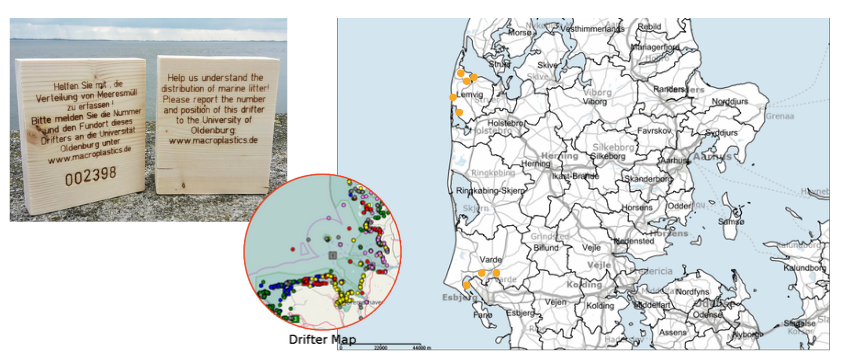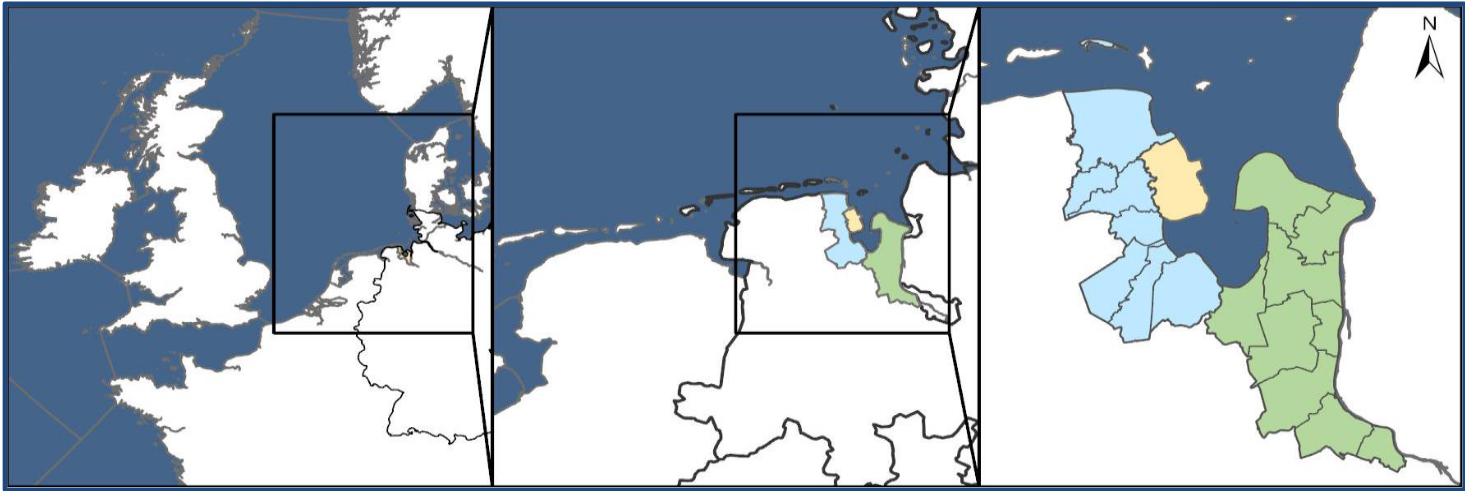During the TREASURE project meeting in Lemvig this May, the living lab coordinators gave another roud of interesting insights into the regional labs.
The Belgian living lab Nieuwpoort is advancing its actions within all four pillars of TREASURE.
For data collection and analysis, the sampling strategy has been finalized, initial sampling activities are currently in progress and plastic simulation scenarios are being modelled. The living lab Nieuwpoort will join the source identification process.
For prevention and behavior change, the first citizen science activities with EU Plastic Pirates, province and schools in Nieuwpoort took place and further activities are planned. Plastic Pirates’ beach protocol for citizen science projects is being trialed in Nieuwpoort.
In the field of plastic waste removal, Nieuwpoort is working on a modular concept toolbox. Suitable locations for the MARC plastic catcher have been selected based on modelled predictions. Initial design calculations will be discussed with local stakeholders before finalizing the locations and building the catcher.
In governance and policy, abstracts were submitted for the MICRO conference and TREASURE was successfully presented at SETAC (Society of Environmental Toxicology and Chemistry). The next steps are to collect information for the policy survey, prepare interviews and to update the action plan and story map for the living lab Nieuwpoort.
The main activity of the Danish living lab is the drifter campaign. Based on the MACROPLASTICS project of the University of Oldenburg, which was conducted from 2016 to 2020, 4000 wooden drifters, simulating floating waste, will be released into rivers and the ocean in eight places within the living lab region. When a drifter is washed up on shore and found it can be reported online. The data can be used to track pathways and accumulation zones of marine waste, giving insights for developing strategies to mitigate marine plastic pollution. Currently, possible release spots are being identified, a registration system is being developed and producers are being contacted. Once official permits are issued, production will begin and an information campaign to inform the public about the project will be kick-started. The release is scheduled for October/November 2024.
One of the four pillars of TREASURE is the expansion of knowledge about composition, distribution and sources of waste through data collection. In the Danish living lab municipalities Lemvig and Varde data collection in the utility system has begun with the installation of cameras in the Lemvig sewage systems and sampling of the rainwater system. Varde focuses on data collection through dialogue with water users, mapping the watershed and identifying potential inputs of litter.
In autumn, the Danish living lab will organize a stakeholder kick-off meeting, where stakeholders of different sectors will be interviewed. The living lab team will compose a report about Danish legislation and initiatives regarding plastic pollution. The living lab will also work on adapting an unwanted overflow system to be able to hold back solid and plastic waste.

Living Lab Denmark's geographical setting and drifter inspiration
The French living lab presented the project to a national expert group in litter pathways.
Plastic pollution of the Liane River is actively monitored by collecting plastic waste along the riverbanks, sampled along two substrates, and in the water using an aquatic drone, along five transects per month. GPS trackers were tested to study the flow and dynamics of macro plastics in the Liane. The scoring technique and material to conduct source identification was shared with members of the data collection and analysis field. In April and May, the living lab held bilateral meetings with local partners (Clean shores association and Artois-Picardie Water Agency) to present the project and discuss their informational needs. A sampling protocol for macro waste on infrastructures and on the water surface in ports is being developed and scheduled to be applied starting in September 2024.
From February to April a survey for port operators was conducted to gain insight into the current state and qualitative impact of plastic pollution in ports, measures carried out to collect plastic waste and requirements to improve ports efforts to tackle marine plastic pollution. In March members of the living lab visited Port du Havre in Le Havre. Further port visits to understand the impact of plastic pollution and how the ports address the challenges are planned for September.
A vacuum-blower and hydro-extractor to collect plastic waste were tested along the Seine.
Several activities like a science club, workshops and field visits to educate students of different age groups on plastic pollution, data collection and prevention were offered at multiple locations. An extensive activity package for secondary schools was developed including workshops on plastic pollution, the Plastic Pirates project and journalism. The Plastic Pirates project was carried out with three classes (students aged 8-10 y.o.) in Boulogne sur Mer.
The project was also presented in the Science Village at the Fêtes maritimes de Brest.
Additionally, the French living lab is hosting a stakeholder kick-off event on September 9th 2024, inviting stakeholder from different fields with a common goal: to tackle the problem of plastic pollution!
The German Living Lab "Plastic-FREE-sia" hosted a successful kick-off meeting on April 17, 2024, in Wilhelmshaven. The event, hosted by the Wadden Sea visitor center. Around 60 regional stakeholders from municipal administrations, NGOs and civil society associations, educational institutions, industrial harbors and marinas, industry and waste management and tourism agencies and local hotels attended the event. The stakeholders participated in a two-stage workshop conducted by the Plastic-FREE-sia core team, accompanied by students of the University of Freiburg.
In the first stage, the participants identified known institutions, projects and actions for plastic reduction in their own regions. In the second stage the participants assigned themselves to thematic tables according to their personal interests and discussed possible collaborations and actions as part of the living lab.

Plastic-FREE-sia geographical scope
Rotterdam University of Applied Sciences is conducting the governance and policy research for the Dutch living lab.
Region Maas Delta:
In the Maas delta region several citizen science projects and public cleaning campaigns have been carried out. Litter on the banks of the Maas delta and Rotterdam region was measured by 200 volunteers. Analysis of the national "Clean Rivers" study revealed an increase of waste in the rivers from 2022 and 2023 to 2024, likely due to a long period of flooding during the past winter.
Together with the Staatsbosbeheer (state forestry administration), the surrounding municipalities, water board, province of North Braband and the Rijkswaterstaat (Directorate-General for Public Works and Water Management) IVN, partner in TREASURE, agreed on the continuation of the campaign “Together we keep the Biesbosch clean”. In March 150 volunteers participated in a clean-up campaign. The effects of the campaign will be researched starting with a visitor survey in the summer.
The annual “Maas Cleanup” took place on March 23. Volunteers participated in trash collection along the banks of the Meuse/Maas up towards the sea in the Rotterdam and Maas Delta region. 150 volunteers managed to collect 200 garbage bags of trash in the Rotterdam region.
Region North-Holland:

Installation of Camera at De Helsdeur for Primary Research (HHNK and Noria)
At the HHNK demo site Noria installed a camera for preliminary research as well as the CirCleaner litter removal system in April. Starting in July, monitoring cameras will be installed at three additional bridges. Noria is working on improving the CirCleaner and has achieved a milestone in improving the automated litter detection through machine learning. Noria is collaborating with several suppliers and plans to install the system beginning in 2025. Partnering with the University of Oldenburg and VLIZ, Noria conducted several sessions to integrate their decision support tool. Noria also organized multiple co-creative sessions with stakeholders to evaluate the existing Serious Game. In addition, Noria has successfully developed the first prototype for the Litter Monitoring Dashboard, which presents data clearly and reports information on plastic pollution status to stakeholders.